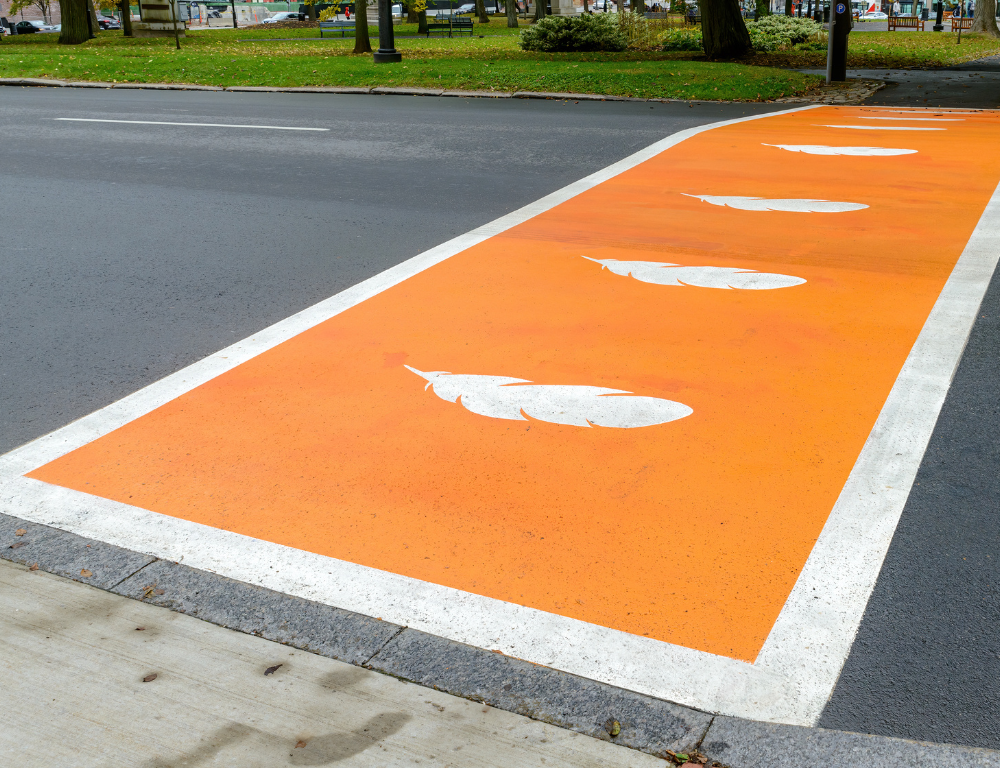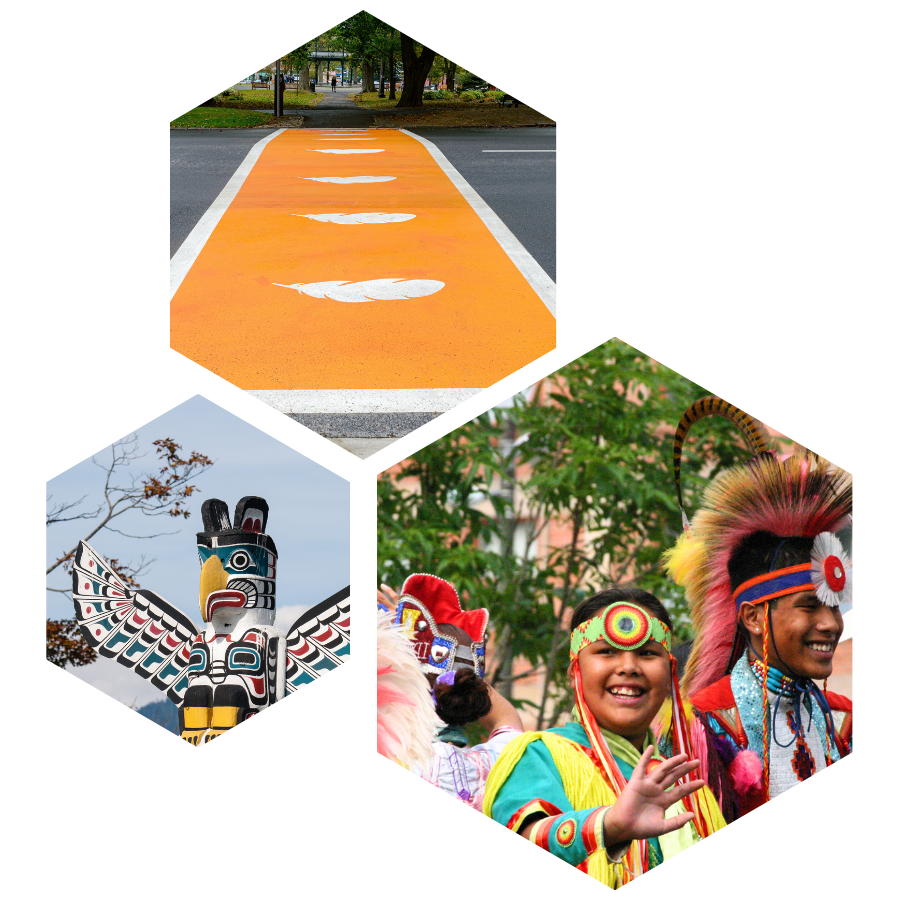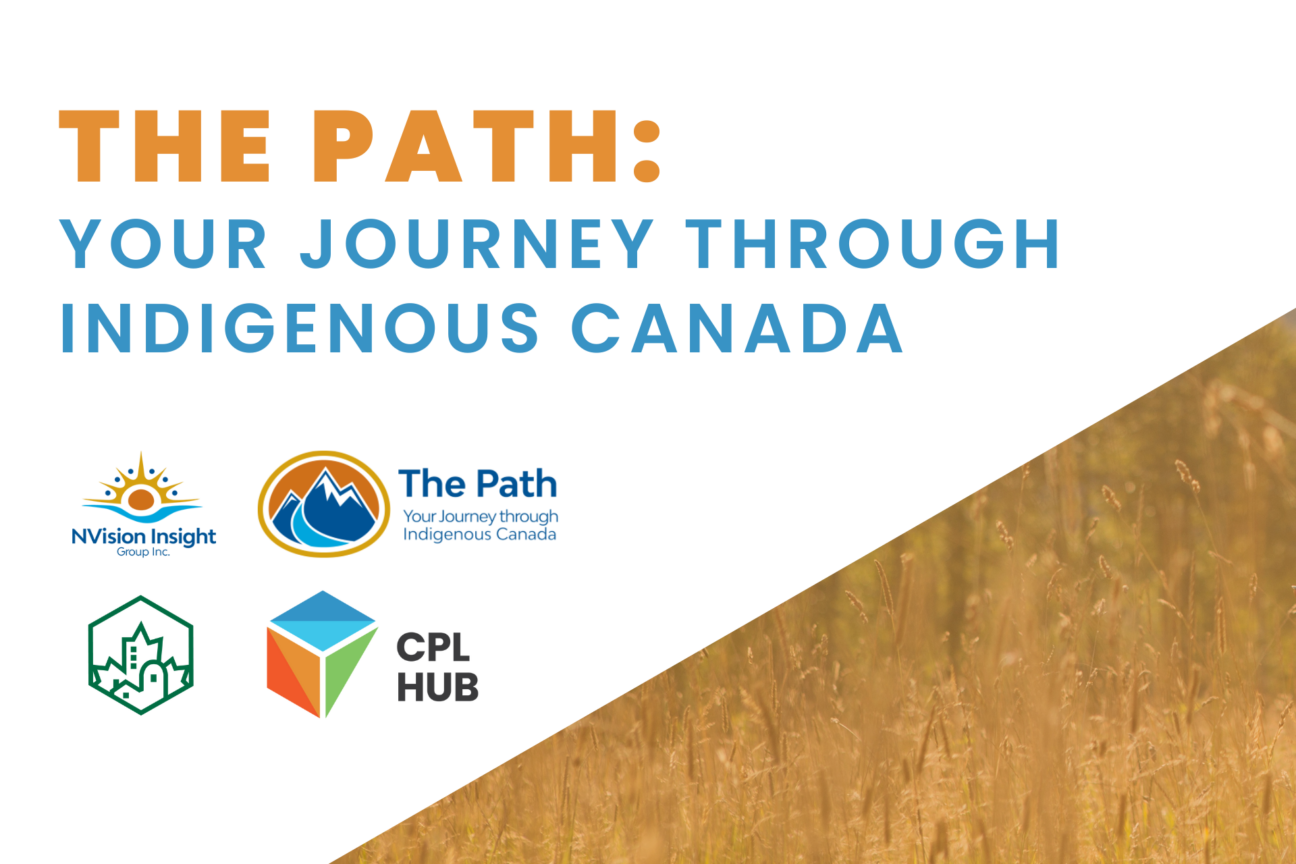
Learning, Truth, and Healing
Reconciliation is more than a conversation; it entails careful and sustained action toward relationship building, based on mutual respect, trust, and dialogue.
With planning practices operating at the nexus of land, livelihoods, policy, and governance, the profession has a wide-reaching impact on virtually all aspects of people’s lives. It is essential that planning recognizes and includes the diversity of needs, rights, values, and knowledge systems of all peoples living on the land.

CIP envisions a future in which reconciliation is meaningfully embedded in planning practice in Canada and planners build relationships with Indigenous peoples based on mutual respect, trust, and dialogue.”

Aspiring for More
To support our reconciliation journey, CIP will undertake the following actions:
- Promoting reconciliation in our communications, policy and advocacy, educational standards, professional development activities, and our work with other professions
- Ensuring that practicing planners have access to the resources, information, training, and other support they need to embed the principles of reconciliation in their practice
- Building awareness of Indigenous histories, rights, issues, and culture among practicing planners through CIP’s CPL HUB
- Supporting the integration of Indigenous histories, rights, issues, and culture in the curricula of planning schools and as a core competency for the accreditation of professional planners
- Supporting and encouraging Indigenous people to consider a career in planning and explore other ways in which they can bring their knowledge to the profession
- Advocating for international and federal policies and actions that contribute to reconciliation
- Considering additional implementation priorities based on an annual environmental scan and membership survey
Taking Action
Our Reconciliation Work
The planning profession is interconnected with the process of reconciliation and has a responsibility to facilitate strong, respectful relationships between Indigenous and non-Indigenous peoples.
Planning Practice and Reconciliation
Against the backdrop of the principles of the Truth and Reconciliation Commission‘s Final Report and the United Nations Declaration on the Rights of Indigenous People (UNDRIP), CIP’s Policy on Planning Practice and Reconciliation is a call to action for planners to engage in meaningful and sustained relationship building with Indigenous Peoples.

Help Shape CIP’s Reconciliation Action Plan
CIP invites you to share your voice in our Reconciliation Action Plan Survey. Your insights will help guide how we support reconciliation through training, policy, advocacy, and relationship-building.
National Indigenous History Month
In June 2023, CIP issued a joint statement with the Provincial and Territorial Institutes and Associations and the Professional Standards Board in recognition of National Indigenous History Month.
Indigenous Student Bursary
CIP is proud to co-administer the SOAR Professional Services Indigenous Student Bursary with the CIP/ICU-Planning Student Trust Fund (CIP-PSTF).
An International Conversation on Indigenous Perspectives
On September 26, 2023, CIP collaborated with Te Kōkiringa Taumata | New Zealand Planning Institute and the Planning Institute of Australia for an international webinar on Indigenous perspectives in planning.
Indigenous Planning Student Award
Administered by Indspire, this annual Award, (generously supported by Urban Systems) supports Indigenous students’ part-time or full-time post-secondary studies at an accredited Canadian planning program.
CIP Reconciliation Action Plan (RAP) Phase 1 – Archipel
To help inform the RAP RFP, CIP supported the efforts of Archipel Research & Consulting Inc. in conducting a preparatory audit and review of our actions on reconciliation and Indigenous planning. Archipel’s report provides an initial evaluation of the work that has taken place to date, as well as recommendations that will help to structure the RAP.
More Resources

The Path: Your Journey Through Indigenous Canada
We are pleased to offer the online Indigenous cultural awareness course “The Path”, created by NVision–a majority Indigenous-owned consulting company dedicated to empowering Indigenous communities.
The Path is an acclaimed six-module course on the history and contemporary realities of First Nations, Inuit, and Métis from coast-to-coast-to-coast.
This course is eligible for six unstructured and self-reported continuous professional learning (CPL) credits.

Check out the latest blog posts on reconciliation.

Watch our latest webinars on reconciliation.

Read more resources on reconciliation.

See who we’re working with on reconciliation.